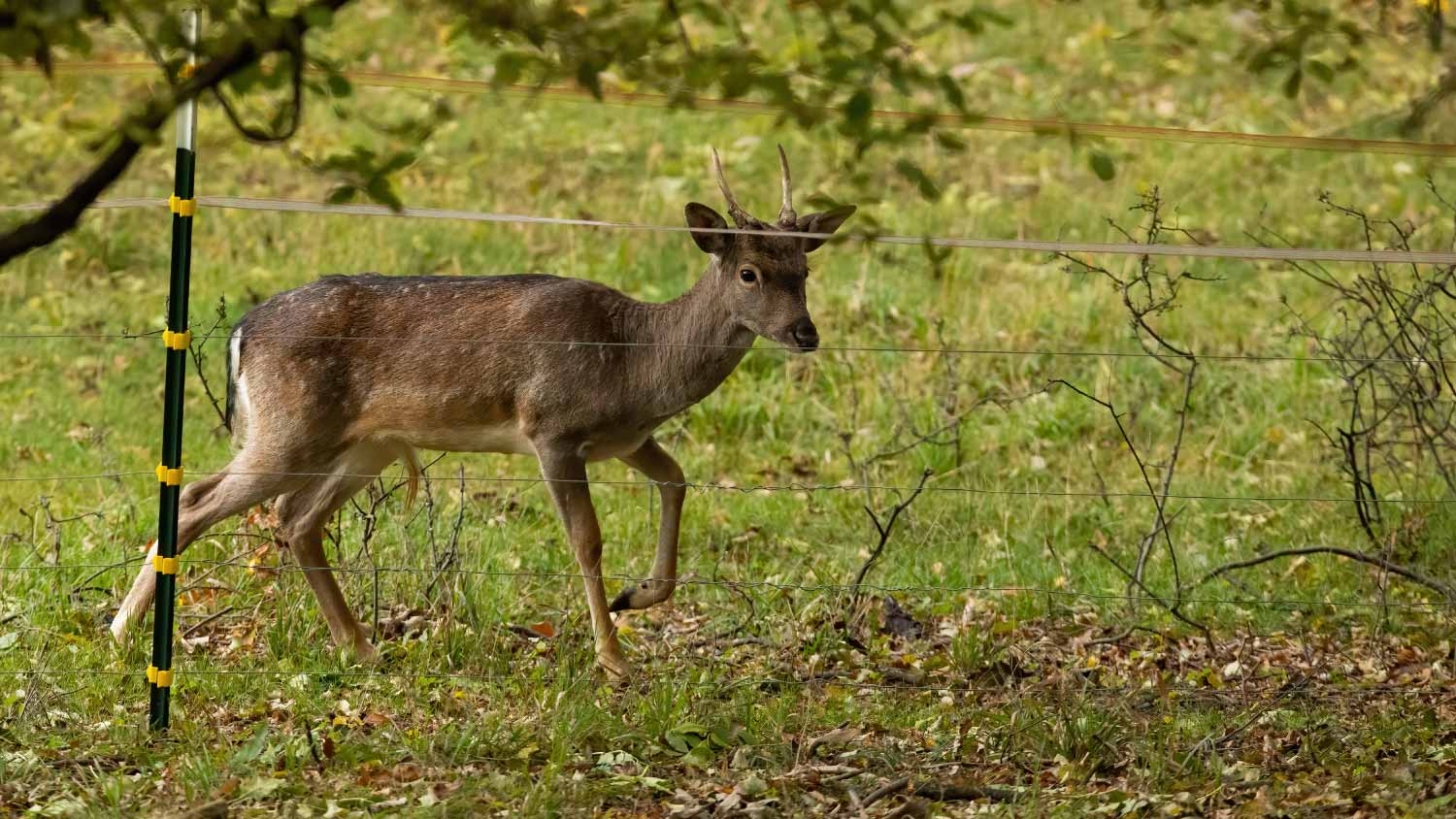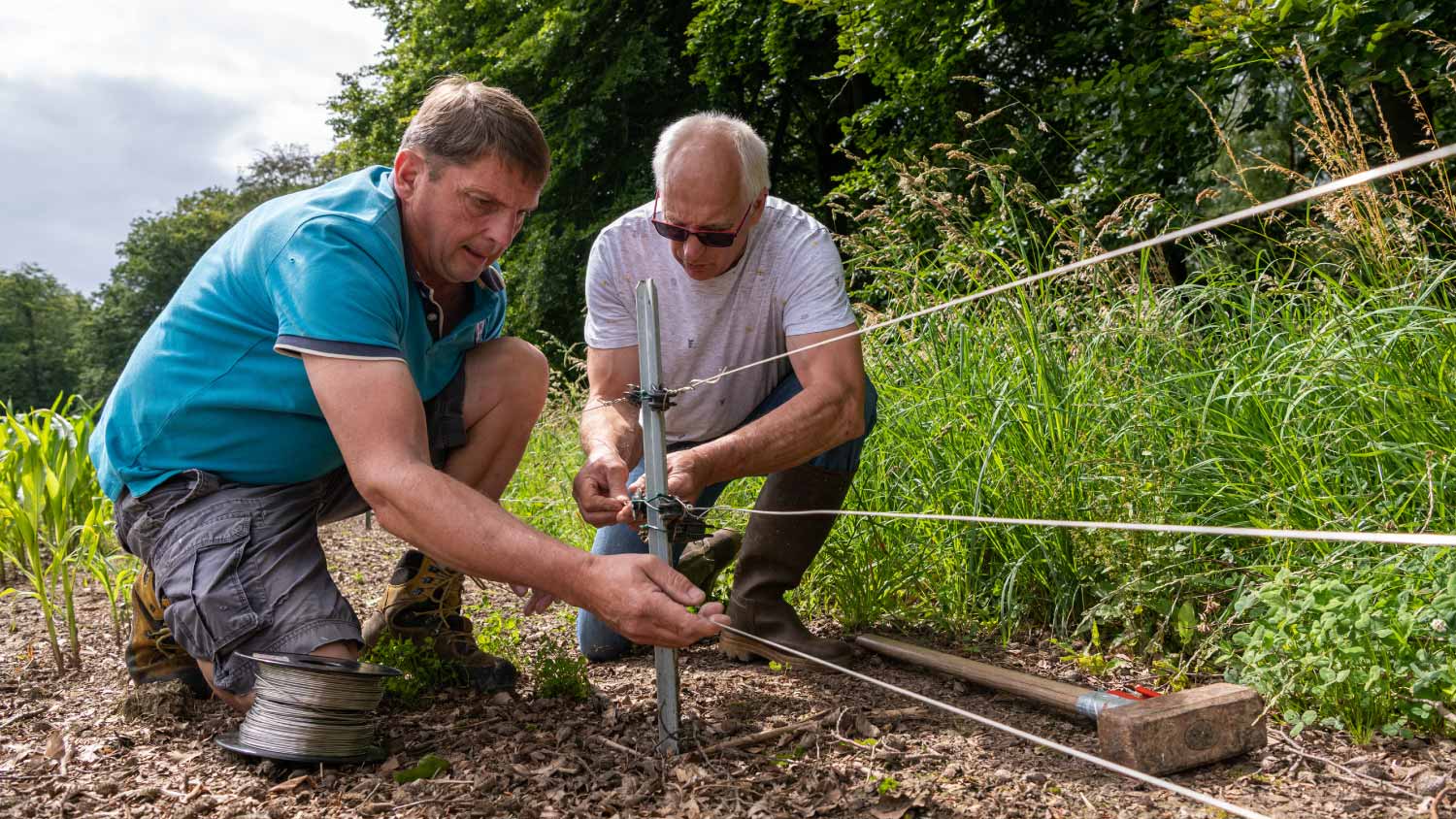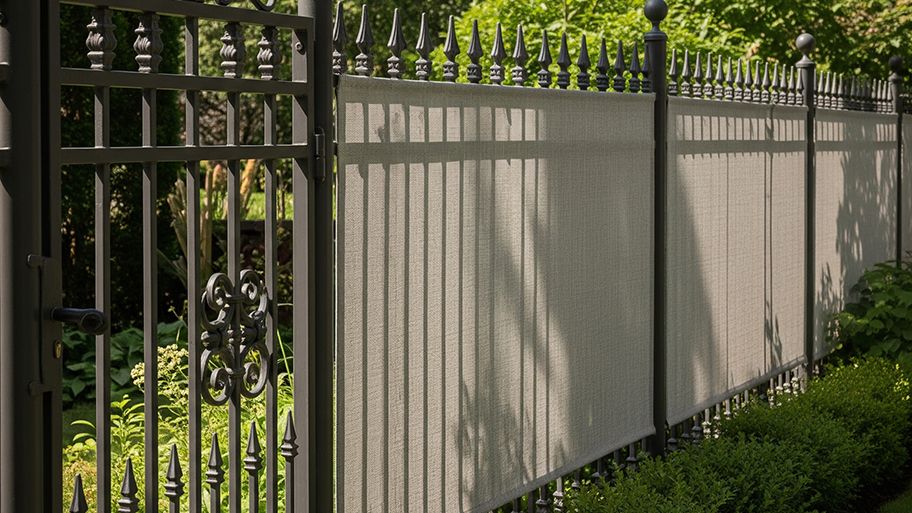
Get expert insights on wrought iron railing repair cost, including average prices, key cost factors, and tips to save on your next project.
Is something not ‘clicking?’ We’ve got you covered


The energizer serves as a critical component of the electric fence's operation.
One malfunction in the electrical fence components can render the entire system ineffective.
Harsh weather conditions can pose an inoperable risk for electrical fences.
Electric fences are one of the most popular types of wire fencing that are indispensable tools in modern agriculture, used for security and animal containment. When you have an electric fence not working, it can be a major cause for concern. To help you bring your land back to safety, we've rounded up ten common issues associated with electric fences so you can begin troubleshooting.
Electric fences need enough power to operate effectively. The energizer requires a reliable and ample power source to deliver a strong and consistent electric charge along the fence line. If the power supply is insufficient or unstable, the electric fence may produce weak pulses or fail to function correctly.
If you have an electric fence clicking but not working, it could indicate a malfunction in the system. The energizer is likely trying to generate electric pulses, but there could be an issue with the power supply that's causing the charge delivered to the fence to be weak or non-existent. To fix the problem, check that the power source meets the requirements of the energizer.

An electric fence relies on an energizer to produce consistent and potent electric charges that deter animals or intruders. Malfunctions, damage, or internal issues with the energizer can result in a weakened or non-existent electric charge, which allows for potential breaches.
Regular maintenance checks on the energizer are essential to maintain the fence's functionality and reliability. These checks should include inspecting for physical damage, ensuring proper connections, and verifying internal components. You'll need to familiarize yourself with how to test an electric fence so you can perform this and more regular maintenance checks safely.
Grounding plays a crucial role in ensuring the proper flow of electric charge through the fence wires, enabling it to return to the energizer and complete the circuit. Inadequate ground rods or improper installation can result in poor conductivity, which disrupts the circuit and weakens the electric charge along the fence line. Also, dry or rocky ground can impede proper grounding, compromising the fence's performance. It's crucial to conduct regular checks and maintenance of the grounding system, ensuring proper installation and moisture levels in the soil.

The ineffective operation of an electric fence can be due to faulty wires or connections along its line. These wires act as pathways for the electric charge. If they become damaged or broken, it disrupts the flow of electricity and creates weak points in the fence. Poor or loose connections at junction points, terminals, or splices can also cause electrical resistance, interrupting the circuit's continuity.
Regular inspections of the fence line can help identify these issues, and vegetation that touches or shorts the wires should be cleared. Any damaged or broken wires should be promptly repaired or replaced.
The maintenance of insulators is crucial in keeping electrified wires away from fence posts to prevent any unintended contact that could cause short circuits. Failure of insulators, be it due to damage, wear, or incorrect spacing, increases the risk of electrical leakage. This leakage leads to a decrease in voltage along the fence line, diminishing the effectiveness of the electric shock and making it easier for intruders or animals to approach. Regularly inspect the insulators for damage or deterioration, ensure correct spacing, and replace any damaged components immediately to maintain the insulation integrity of the electric fence.
Fuses and circuit breakers serve as crucial safety measures for protecting the energizer and the overall fence system from potential overloading or short circuits. If these mechanisms fail and the fuse blows or the circuit breaker trips, it indicates that the electrical current has exceeded the system's capacity. While necessary for preventing damage, frequent or continuous failures can lead to an inactive fence with a disrupted power supply.
The conductivity of an electric fence system may decline due to corrosion or rust on its components. This deterioration mostly happens in metal parts, including connectors, wires, and other conductive elements. Corrosion creates resistance in the flow of electrical current, reducing the electric charge transmitted through the fence. Rust, a type of corrosion specific to iron and steel, exacerbates the issue by creating insulating layers that further restrict the free flow of electricity.
Inspecting electric fence components regularly for signs of corrosion or rust and replacing damaged or corroded connectors is vital. You may also need to clean or replace your wires. Using corrosion-resistant materials and coatings during installation can also help reduce environmental factors' impact on the longevity and conductivity of the electric fence system.

Sure, animals are cute—but they can wreak havoc on your electric fence. Your yard's critters may cause physical damage to your fence's components. Rodents, birds, or larger mammals can scratch or chew on the wires, insulators, or other parts of the system, resulting in breakages, exposed wires, or damaged insulators that can disrupt the flow of electric current. Animals may build nests or burrows near the fence, increasing the risk of entanglement or accidental contact with the electrified wires.
Inspect the electric fence for signs of animal interference, such as bite marks or nesting activity, to identify and address potential issues. Mitigating the risk of animal damage can be achieved by employing deterrents such as wire covers or barriers. Proper installation and maintenance of the electric fence and the timely repair of any animal-caused damage can keep your fence functioning well.
When stormy weather strikes, your electric fence may feel it, too. Heavy rain, snow, or ice can compromise the conductivity of an electric fence because moisture creates a path of low resistance. This allows the electric charge to escape, which reduces the deterrent effect. Lightning strikes pose a serious risk to the entire fence system because they can cause damage to the energizer, wires, and other components. Even a nearby strike can overload the system and lead to malfunction or permanent damage.
To minimize the impact of weather on an electric fence, it's essential to install and insulate it correctly. You can use surge protectors and lightning arrestors to safeguard the energizer from lightning strikes. Regular maintenance is also key, particularly after severe weather events, to quickly identify and address any issues.

Poor installation practices can seriously jeopardize the functionality of an electric fence. If not installed properly, the fence system components may not work together seamlessly, leading to poor performance. Inconsistent spacing of insulators along the fence line can lead to unintended contact between wires, resulting in short circuits and interrupting the flow of electric current. This not only diminishes the fence's deterrent capabilities but also undermines its overall integrity.
Improper connections and wiring during installation also lead to voltage drops and electrical resistance. Wires that are not securely fastened at junction points or terminals can result in unreliable conductivity, thus reducing the efficiency of the electric fence. Inadequate grounding during installation may also result in poor conductivity, further impacting the system's effectiveness. Adhering to manufacturer guidelines is vital in avoiding installation-related issues. You should do regular inspections to identify and fix any errors in the installation process to make sure the electric fence functions as a reliable deterrent or containment solution.
Hiring a local fence company is the best method to ensure proper electric fence installation. An electric fence costs between $1,025 and $1,640 for installation. Knowing how to hire a fence contractor ensures you find the perfect professional for your electric fence needs. You'll need a contractor skilled in electric fences, as these professionals are trained in the electrical aspect of installation and can assist in troubleshooting any issues that aren't readily known or easy to fix on your own.
From average costs to expert advice, get all the answers you need to get your job done.

Get expert insights on wrought iron railing repair cost, including average prices, key cost factors, and tips to save on your next project.

Learn vinyl fence installation costs in Seattle. Discover how local climate, permits, and materials affect your fencing project pricing.
The cost to build a wood fence in Seattle, WA depends on the size, material, add-ons, and more. Read this guide to learn how each cost factor impacts the price of a wood fence.

Looking for a little more seclusion in your yard? No problem. Learn how to cover a metal gate for privacy with a few simple tricks and tips.

Chain-link fences are among the most affordable options available. Use this chain link fence cost guide to see what your installation will cost in Columbus, OH.

How much does it cost to build a seawall? Read on and learn why freshwater seawalls are often half the price of their salty cousins.